
From The Baltimore Sun online
(Photo: Osun Shrine at Sacred Grove)
OSHOGBO, Nigeria - Wasiu Olasunkani drops to his knees in the sacred grove, lowers his chin to his chest and turns his palms skyward: a gesture of thanks to a traditional water goddess embodied by the huge stone idol with outstretched arms that sweep over an ancient shrine.
Olasunkani, a Muslim whose 1998 pilgrimage to Mecca fulfilled one of the five pillars of Islam, joins tens of thousands of ethnic Yoruba people each year to pray before the idol and offer libations to her mermaid-like spirit, Osun. Last year, Olasunkani beseeched the goddess for a baby. This year he's thanking her for twin boys, Farook and Cordroy.
"If you want to get a baby, you come here and pray, and you'll certainly have one," said the 46- year-old doctor after finishing his riverside reverie. Speaking of his fellow Yoruba people of southwestern Nigeria - 20 million strong and roughly evenly split between Christians and Muslims - he says: "We've been doing this for centuries."
Across West Africa, churches or mosques can be found in virtually every settlement: evidence of deep Christian and Muslim roots sown by the merchants, missionaries and slave traders who brought the religions hundreds of years ago. But also firmly settled in the red soil are indigenous practices that West Africans integrate with the foreign beliefs.
The results may sometimes seem to flout the monotheistic holy books, the Bible and Quran. But many West African faithful say their interpretations are equally valid - although they don't always tell their pastors or imams.
Olasunkani says his prayers to Osun, only one goddess in the Yoruba pantheon, are cultural and shouldn't be considered in conflict with Islam's monotheism.
"I believe that there is God. What I mean is that we should have the fear of God," he says, water still dripping from his face after ablutions in the river also called Osun, near the city of Oshogbo.
"In Saudi, they'll tell you that this isn't good. But God is our creator, and he made everything. If God thought this wasn't good, he wouldn't allow it."
Tunde Osunleti, a Christian also at a recent festival celebrating Osun, agrees.
"Jesus is the one who created this Osun. I just believe we're serving one God," says the 19- year-old artist. "My pastor would say, 'Don't go here.' But my pastor is not my God. I only believe in God, and myself."
In the largely Christian areas farther south, many professed Christians have more than one wife, which tallies with pre-Christian practices where men took on many spouses to ensure survival of the bloodline during times of drought or war.
Some people practice both Islam and Christianity. One taxi driver in Freetown, Sierra Leone, tells of traveling with his first wife to mosque on Friday and his second wife to church on Sunday.
In Nigeria, shrines with old icons abound, with members of many ethnic groups praying to their old gods.
The first visitors who brought Christianity, largely by boat to the coasts, and Islam, to inland areas by camel over the Sahara, tried to end local practices. Their spiritual descendants, now often Africans themselves, are still trying.
Christians, particularly evangelicals, have told some followers to smash the idols near their homes. In Nigeria's Muslim north, some imams tried to end the tribal dances and mask displays.
But the prayers to multiple gods, or treating animals as deities, continues even among self-avowed Christians and Muslims.
Nigerians joke that their notoriously corrupt politicians enter office swearing on the Bible or Quran to uphold the laws of the land, but if they were forced to promise fealty to the law before their local god of thunder, the thievery would end immediately.
While the Yoruba are evenly divided between Muslims and Christians, religious disputes are rare among them, and Islamic extremism virtually unknown. The sheer volume of belief systems forces Nigerians to accept others' practices, lest their own be rejected.
Across Nigeria, members of the two faiths live in close quarters, and when fighting has occurred, ethnic or other considerations have also been a major factor. Usually, uneducated and impoverished young men are cajoled into conflict by cynical leaders.
"Where there's understanding, it helps that we have more than one religion" in Nigeria, says the Rev. Akintunde Popoola, a spokesman for the Anglican Communion in Nigeria. "We must understand each other while holding onto our beliefs. The problems arise when there's not enough understanding, and one religion tries to lord it over another."
While many of the old practices go on in secret, others don't. Each year, upward of 100,000 Yoruba people like Osunleti and Olasunkani travel to a forest in the middle of the southern city of Oshogbo to pray to Osun. Osun, the fable holds, rose from the river to help lead the Yoruba people to the area, and each year hordes of Yoruba people of all ages cram into the riverside glen that has been named a UNESCO world heritage site.
On a recent Friday, throngs of people made their way down into the forest to partake in the festivities, where they give thanks and praises. The festival is so popular that it's broadcast live on national television, sponsored by Nigerian telecommunications and alcohol companies.
"Some people may say we're worshiping idols. But no, this is our heritage and we can't forget it," says Oladunjoye Wasiu, a 25-year-old student standing by the river. "Allah sent the water in the days of our forefathers, so there's a rapport."

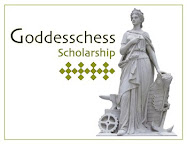
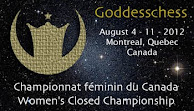


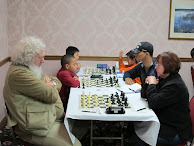

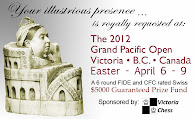

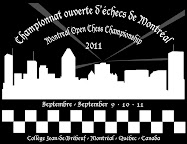










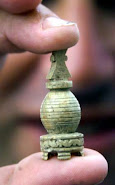











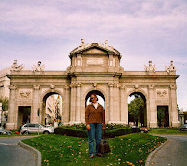


No comments:
Post a Comment